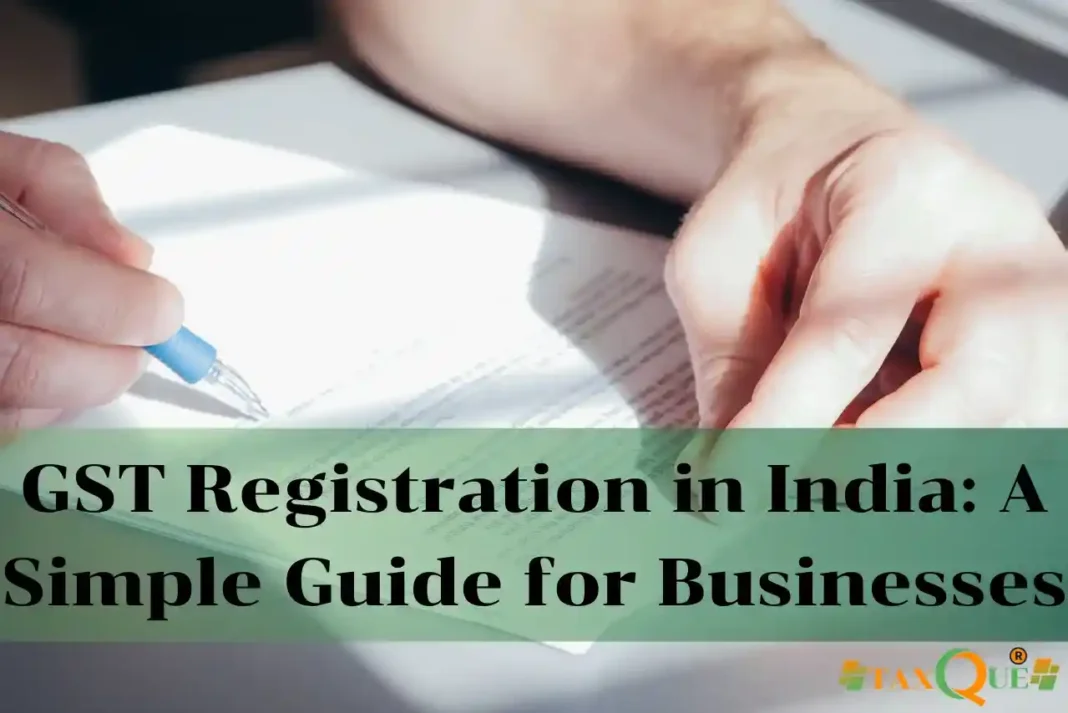Introduction
GST registration in India is a must for businesses to operate legally and take advantage of India’s unified tax system. The Goods and Services Tax (GST) has simplified taxation by replacing multiple taxes like VAT and service tax with one. Whether you’re a small shop owner, an e-commerce seller, or a startup founder, GST registration in India ensures compliance and unlocks benefits like input tax credit. This blog explains what GST registration is, who needs it, the step-by-step process, benefits, and more in simple words. Let’s get started!
Understanding GST Registration in India
GST registration is the process of enrolling your business under the GST Act. Once registered, you get a unique 15-digit GST Identification Number (GSTIN), which allows you to collect GST from customers and claim tax credits on purchases. It applies to businesses selling goods, services, or both across India. According to the Central Board of Indirect Taxes and Customs (CBIC), GST has made tax compliance easier and more transparent (https://www.cbic.gov.in).
Who Needs to Register for GST?
Not all businesses need GST registration, but certain ones must comply. Here’s who needs GST registration in India:
- Businesses with an annual turnover above ₹40 lakh (₹20 lakh for special category states like Assam or Meghalaya).
- E-commerce sellers, regardless of turnover.
- Businesses supplying goods or services across state borders.
- Importers, exporters, or those dealing with taxable supplies.
- Casual taxable persons or non-residents operating temporarily in India.
Voluntary registration is also an option for businesses below the turnover limit to avail benefits like input tax credit.
Step-by-Step GST Registration Process
The GST registration process is simple and online. Below is a table summarizing the key steps:
| Step | Description |
|---|---|
| Visit GST Portal | Go to www.gst.gov.in, click ‘Services’, and select ‘New Registration’. |
| Fill Part A | Enter PAN, mobile number, and email ID for verification. |
| Receive TRN | Get a Temporary Reference Number (TRN) via email/SMS to proceed. |
| Complete Part B | Submit business details, bank account info, and documents (PAN, Aadhaar, address proof, etc.). |
| Verification & Approval | GST officer verifies your application; GSTIN is issued within 7 working days. |
For detailed guidance, check the official GST portal (https://www.gst.gov.in).
Benefits of GST Registration in India
GST registration in India offers several advantages for businesses. Here are the key benefits:
- Tax Compliance: Avoid penalties by adhering to GST laws.
- Input Tax Credit: Claim credit for GST paid on business purchases, reducing tax liability.
- Interstate Business: Sell goods or services across India without restrictions.
- Credibility: Registered businesses gain trust from customers and partners.
- E-commerce Access: Mandatory for selling on platforms like Amazon or Flipkart.
A report by the Ministry of Finance highlights that GST has boosted India’s ease of doing business (https://www.finmin.nic.in).
Common Challenges and How to Overcome Them
While GST registration is straightforward, some businesses face challenges. Here are common issues and solutions:
- Document Errors: Ensure all documents (PAN, Aadhaar, etc.) are valid and match. Double-check before submission.
- Technical Issues: The GST portal may face glitches. Try registering during non-peak hours or seek professional help.
- Understanding Rules: GST laws can be complex. Use reliable resources or consult experts for clarity.
Managing GST registration and compliance can be time-consuming. TaxQue is a user-friendly platform that simplifies the process. It offers expert assistance, document preparation, and GST filing services, making it ideal for startups and small businesses. With TaxQue, you can ensure error-free GST registration in India and stay compliant effortlessly.
Frequently Asked Questions (FAQs)
1. What is the turnover limit for GST registration in India?
The turnover limit is ₹40 lakh for businesses dealing in goods (₹20 lakh in special category states) and ₹20 lakh for service providers. Businesses exceeding these limits must register.
2. Can small businesses opt for voluntary GST registration?
Yes, businesses below the turnover limit can voluntarily register for GST to claim input tax credits and expand their market reach, especially for interstate sales.
3. What documents are required for GST registration?
You need PAN, Aadhaar, proof of business address, bank account details, and business registration documents (e.g., partnership deed or incorporation certificate). Ensure all documents are valid.
4. How long does it take to get a GSTIN?
After submitting all required documents on the GST portal, it typically takes 7 working days for the GST officer to verify and issue your GSTIN.
5. Is GST registration mandatory for e-commerce sellers?
Yes, all e-commerce sellers, including those on platforms like Amazon or Flipkart, must register for GST, regardless of their turnover.
Conclusion
GST registration in India is a vital step for businesses to stay compliant and grow in a competitive market. From understanding who needs to register to following the easy online process, this guide covers all you need to know. With benefits like input tax credit, interstate sales, and enhanced credibility, GST registration is a game-changer. Platform TaxQue can simplify the process, saving you time and effort. Don’t wait—visit the GST portal (https://www.gst.gov.in) today and kickstart your GST registration journey!





